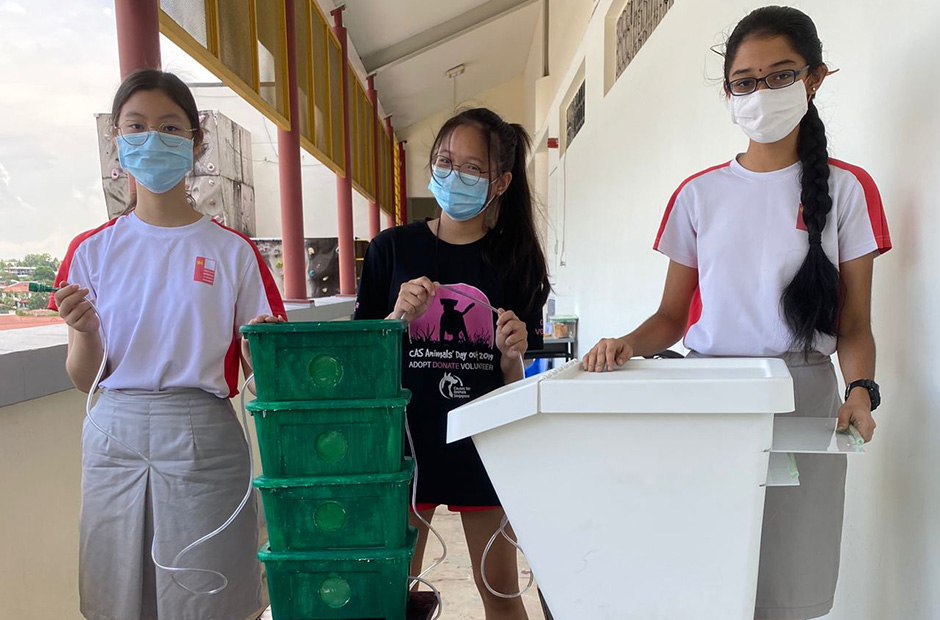From a tour bus commentary to empty hotel rooms, the sights and sounds around us can spark learning for the Economics students of Mr Kevin Tan, School Staff Developer at Eunoia Junior College. Over at Mr Simon Quek’s class, common items such as pocket money and coin banks come up in lessons. The Head of Department of Economics at Raffles Institution uses them when explaining concepts such as balance of payments and official foreign reserves.
Mr Tan and Mr Quek, who are recipients of the Outstanding Economics Teacher Award 2021, make economic principles relevant – even essential – to their students in their everyday lives. Let’s find out more about how they empower their students and what inspires their craft.
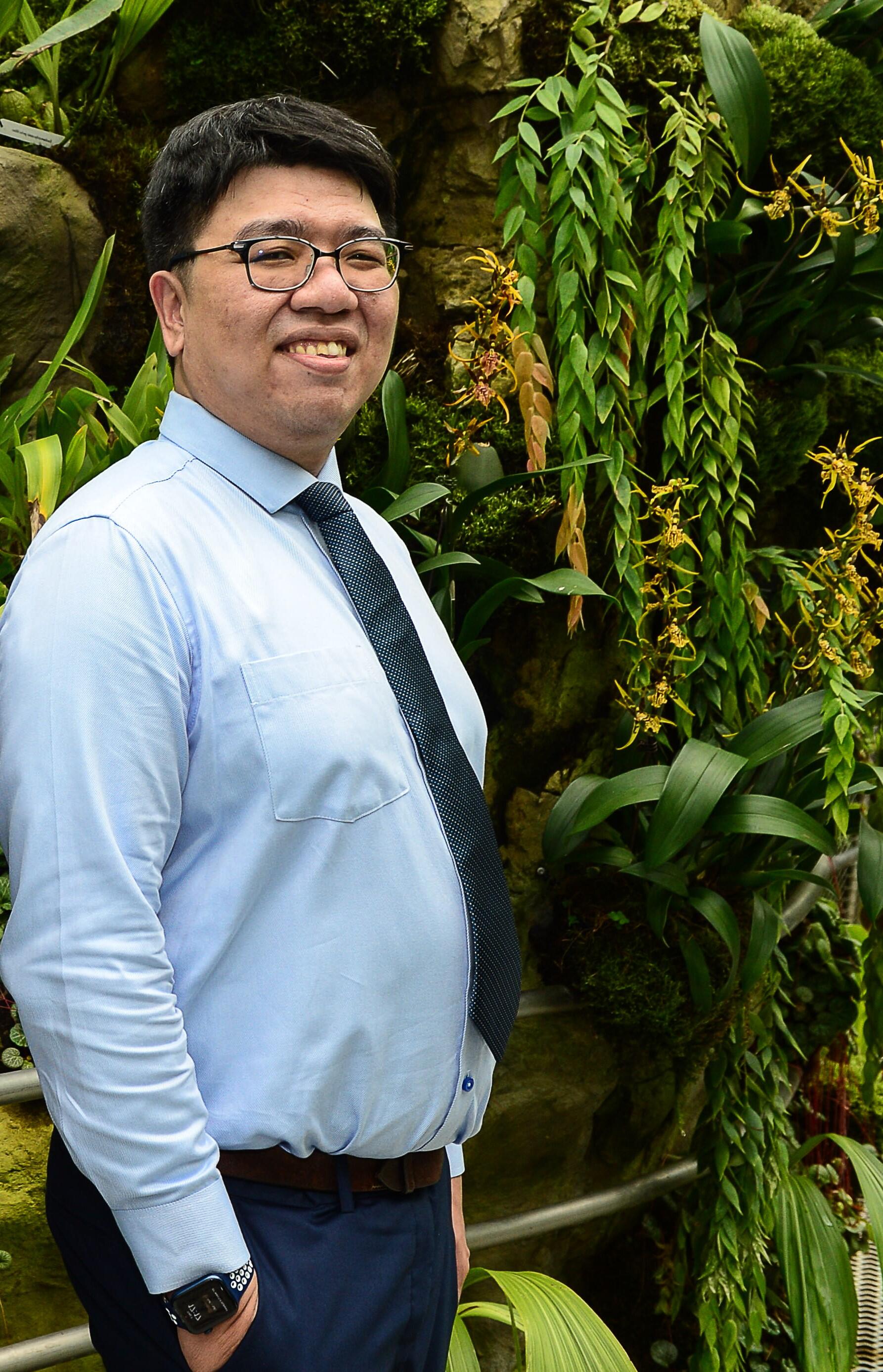
Mr Tan prompts his students to observe their surroundings – with the hashtag #whereistheecons running in their heads.
1) Mr Tan, could you describe your experience teaching Economics in 3 words?
Growth, excitement and dynamism. My growth as a teacher has been spurred by being able to frequently relate the concepts learnt in Economics to real-world examples and having deeper discussions with students where we challenge one another’s assumptions; excitement, when I observe students pointing out logical fallacies or providing counter-examples, assuring me that certain concepts have clicked in their minds; and dynamism, to innovate and adapt my teaching and lessons to the needs of my students. For example, during the pandemic, when students had to sit farther apart and were restless, I got them to walk around the school and take photographs of Economics in action. They liked the experience!
2) What is one such situation where they saw Economics happening around them?
When our school was at Mount Sinai Road, I pointed out to my students that when they walk out of the school gate, they will find rental flats on their left, and landed property on their right. Why is this happening in such a small area? This simple question triggered a rich discussion and what may have been just a concept learnt in the Economics syllabus came to life for the students. They could observe and consider the reasons and implications of income inequality, making the learning of Economics even more meaningful.
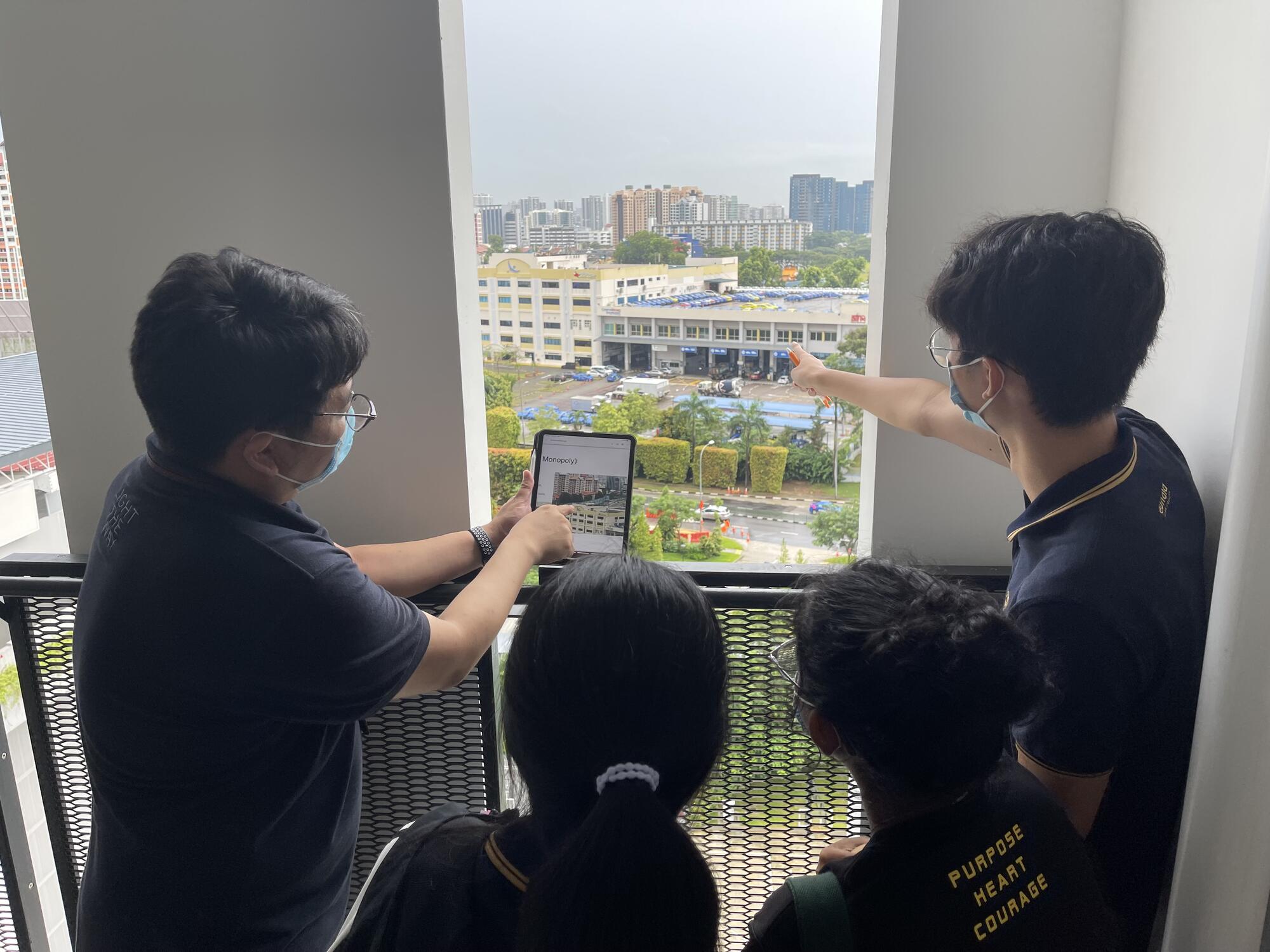
At one of his out-of-classroom lessons during the pandemic, Mr Tan (left) got his students to discuss how unused taxis could be a sign of market disruption and competition in the transport sector.
3) Tell us more about the chatgroup for your students.
To encourage shy students to ask questions, I started a WhatsApp group chat for them. I also started the hashtag #whereistheecons. Whenever I chance upon a video clip or a picture that’s relevant to the hashtag, I will post it on the chat with the tag. And students were also inspired to discuss the applications of Economics to their daily lives. For example, students posted about their observations during the circuit breaker period, such as the dark, empty rooms in hotels, and commented on how the tourism sector affected the aggregate demand and the negative repercussion on Singapore’s economy.
4) What is your favourite piece of advice to them?
“Everything involves an opportunity cost.”
When you make choices in your life, whether it is a personal decision, a business decision, or when you are trying to understand government policies, you must always understand that there is no free lunch. Every decision you make involves a cost. This is one piece of advice which I hope my students will take away from learning Economics.
5) What do you think of practising Economics as a career?
At the heart of Economics is how people’s lives can be improved. For those who aspire to practise Economics, identify something you want to improve in the world and apply an economic lens on the issue. However, that is not sufficient. You have to understand a problem from different perspectives. For example, on the topic of inequity, you need to consider it from the perspective of low-, middle- and high-income families, as well as the government’s point of view. To be an effective economist, one must be able to ground his or her theories in lived experiences.
Students can get in touch with these experiences through volunteering or opportunities offered by their schools, which include tie-ups with external agencies and internships. With these skills and knowledge, I hope that some, if not all of my students, will be able to make a difference to the lives of others, at a personal level, or that of a policymaker.
Thanks, Mr Tan, for sharing your insights with Schoolbag. Next, we meet our second 2021 Outstanding Economics Teacher Award winner, Raffles Institution’s Mr Simon Quek, on how he knows when his lessons are hitting the right notes with his students.
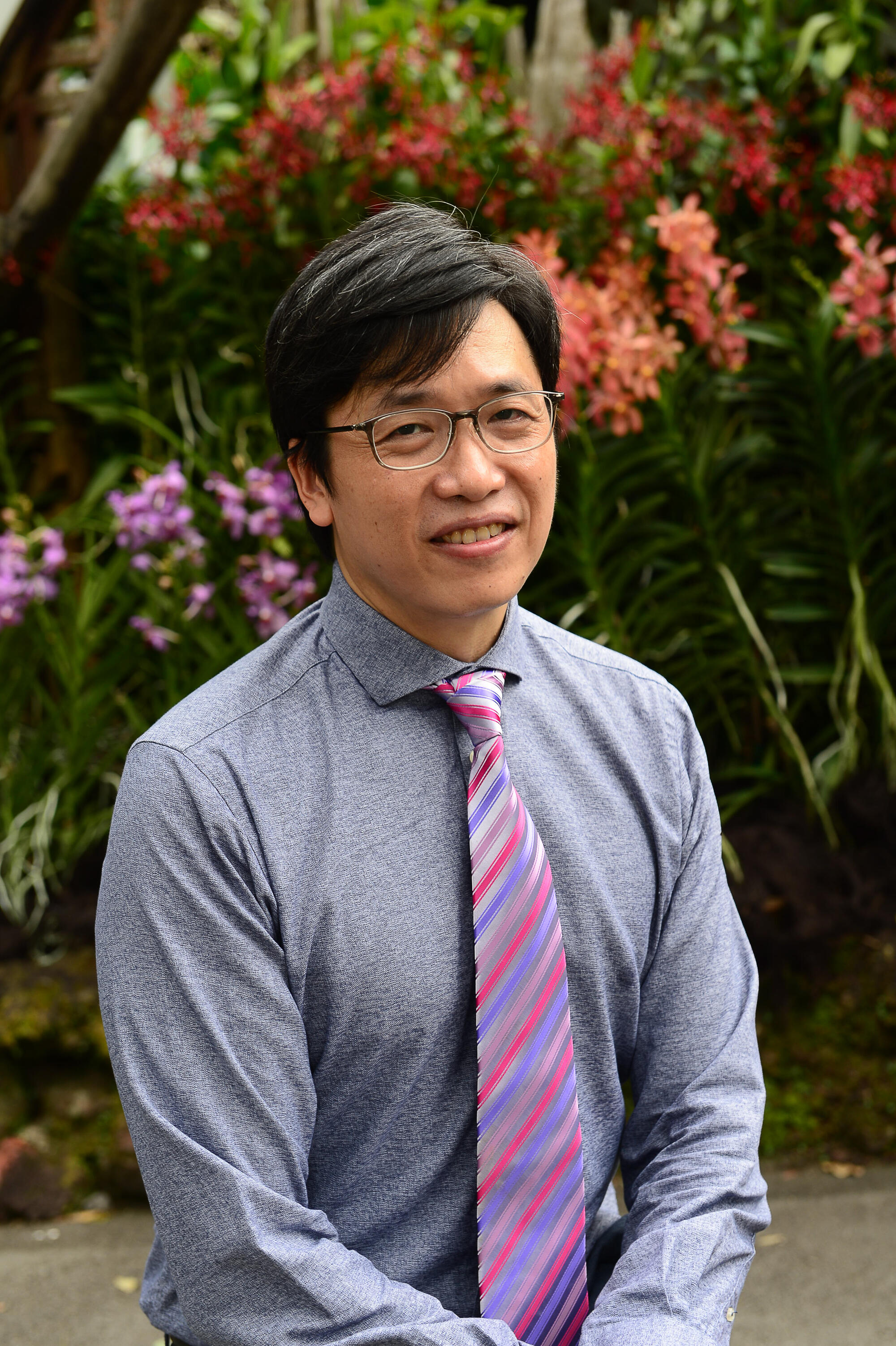
Mr Quek is keen to help students interpret real-world happenings through a critical economic lens.
1) Hi Mr Quek, could you describe your experience teaching Economics in three words?
Stimulating, because there are many links between what we teach (our syllabus, the theories, the Economics framework) and what we observe all around us; satisfying, when students have an eureka moment, whether in terms of understanding the theory or being able to explain an event using what they have just learned; enriching, because I am continually gaining and applying new knowledge and perspectives to current affairs.
2) You have been teaching A-Level Economics for 10 years. How do you know when a lesson has gone well?
When it’s dynamic. This is where I set the stage and the parameters for discussion, and where students actively contribute their ideas. I play the role of a facilitator, posing questions and prompting them to elaborate on their ideas, and in so doing, sharpen their thinking. I find it particularly satisfying when students are able to critique each other’s ideas and analysis, and I facilitate by putting everything together and distilling the key takeaways. Seeing my students collectively building a response is very rewarding.
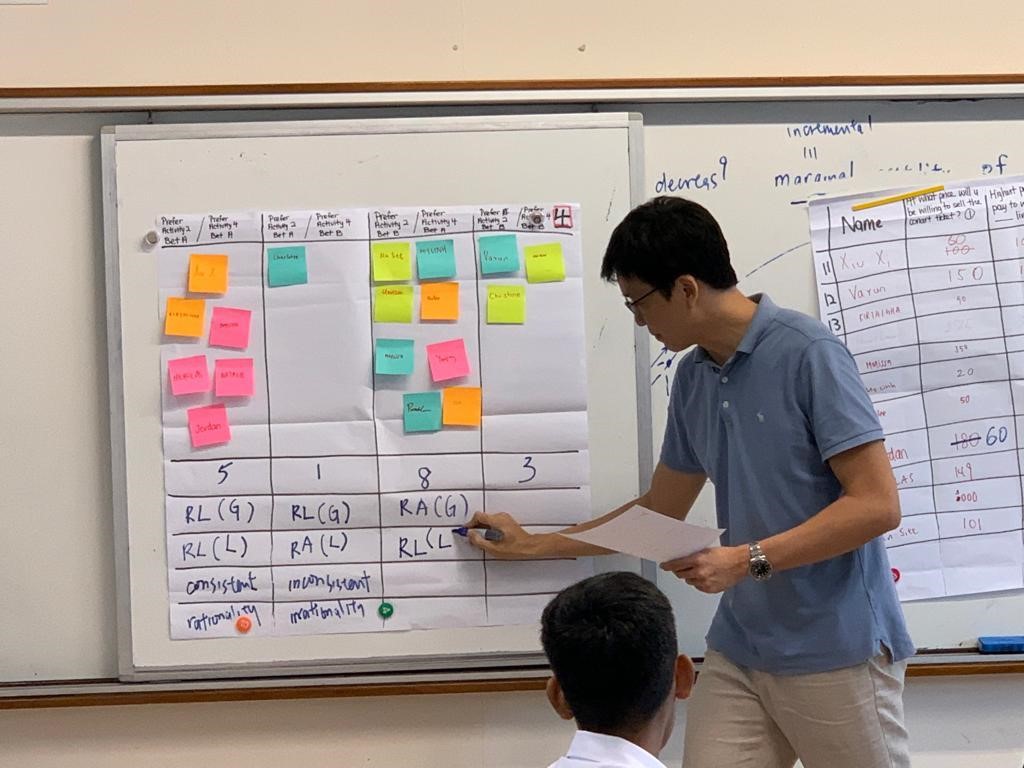
Mr Quek enjoys the role of facilitator and encourages his students to collectively build on each other’s responses.
3) Name one concept that your students tend to misunderstand.
Students tend to confuse the Official Reserves Account in the Balance of Payments with the amount of Official Foreign Reserves that a country has. The Official Reserves Account actually reports the change in Official Foreign Reserves, but not the level of Official Foreign Reserves. The analogy that I use likens Official Foreign Reserves to money that a country has saved in a vault. The Official Reserves Account in the Balance of Payments is like an accountant who guards the vault entrance and keeps track of all the money that goes into or come out of the vault in a year, and yet is never allowed into the vault. This is why he is able to accurately report the amount of money that has gone into or come out of the vault, but not the amount of money that is actually in the vault.
4) What are some challenges your students face?
I find that there is an unhealthy obsession with model answers. That is not the endpoint of teaching Economics, and Economics is not assessed in that manner as well. As long as students are able to analyse and discuss a question based on sound economic concepts, credit will be duly given. So, this obsession with ‘the answer’ is very stifling. It actually discourages students from thinking independently and critically, when the best answer is a conceptually sound response that they are able to come up with themselves.
5) When not obsessing over model answers, do you see them applying their lessons to contemporary issues?
The strength of the A-Level Economics syllabus and assessment format is that it is very up-to-date in terms of real-world economic issues, and all the questions are set in the real-world context. In the Case Study component of the paper, students read articles on recent economic issues. In the future, Economics could even help them critically evaluate economic policies, examine the pros and cons, and understand that there is no perfect economic policy; there will always be trade-offs. In this way, they can participate better in the democratic process.
6) What real-world trends have piqued your interest of late?
Inflation that is starting to take place in developed economies. These inflationary pressures could signal the start of a longer-term trend of inflation in global economies.
Another issue that has come to the forefront in major economies is inclusive and sustainable growth – how economies are able to grow in a manner that benefits everyone in the economy. This is in response to growing income inequality brought about by the capitalist system.
7) Finally, any advice for aspiring economists?
“Know your theories and economic models, but never trust them totally.”
Economic theories and models are basically simplifications of what is happening in the world, and are useful in explaining certain phenomena under a very specific set of assumptions and conditions. However, what contributed to, say, the financial crisis of 2009 may be very different from the next financial crisis. So, if we are going to apply the same theories or models that were used to explain a previous phenomenon and trust them totally, it may not turn out well. We should be very critical about the assumptions that are made in economic models, be adaptable, and check theoretical analyses against what is happening in the real world.
Know an inspiring Economics teacher, or one who adopts creative methods to make Economics fun and engaging? Check with your school to nominate him or her for the Outstanding Economics Teacher Award.




